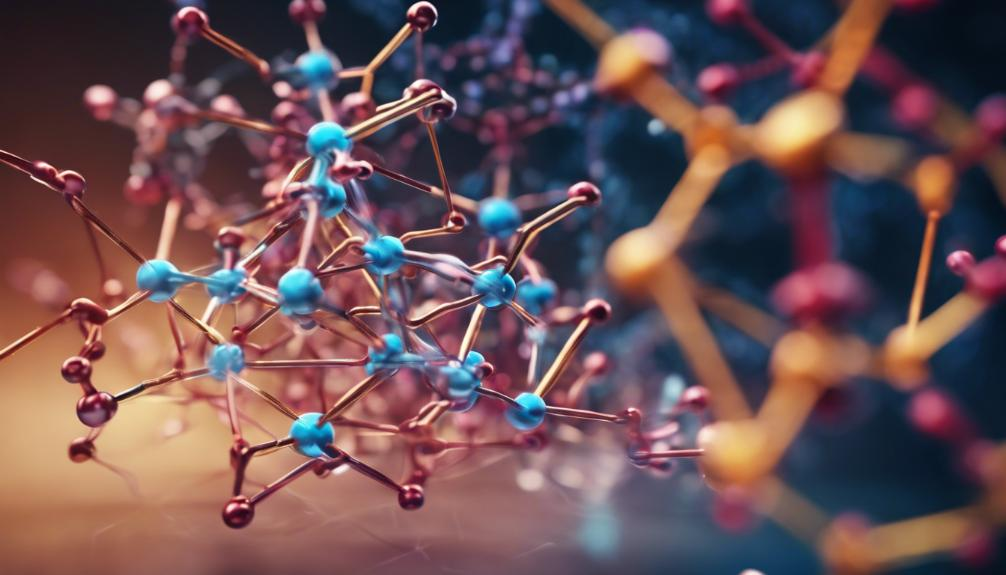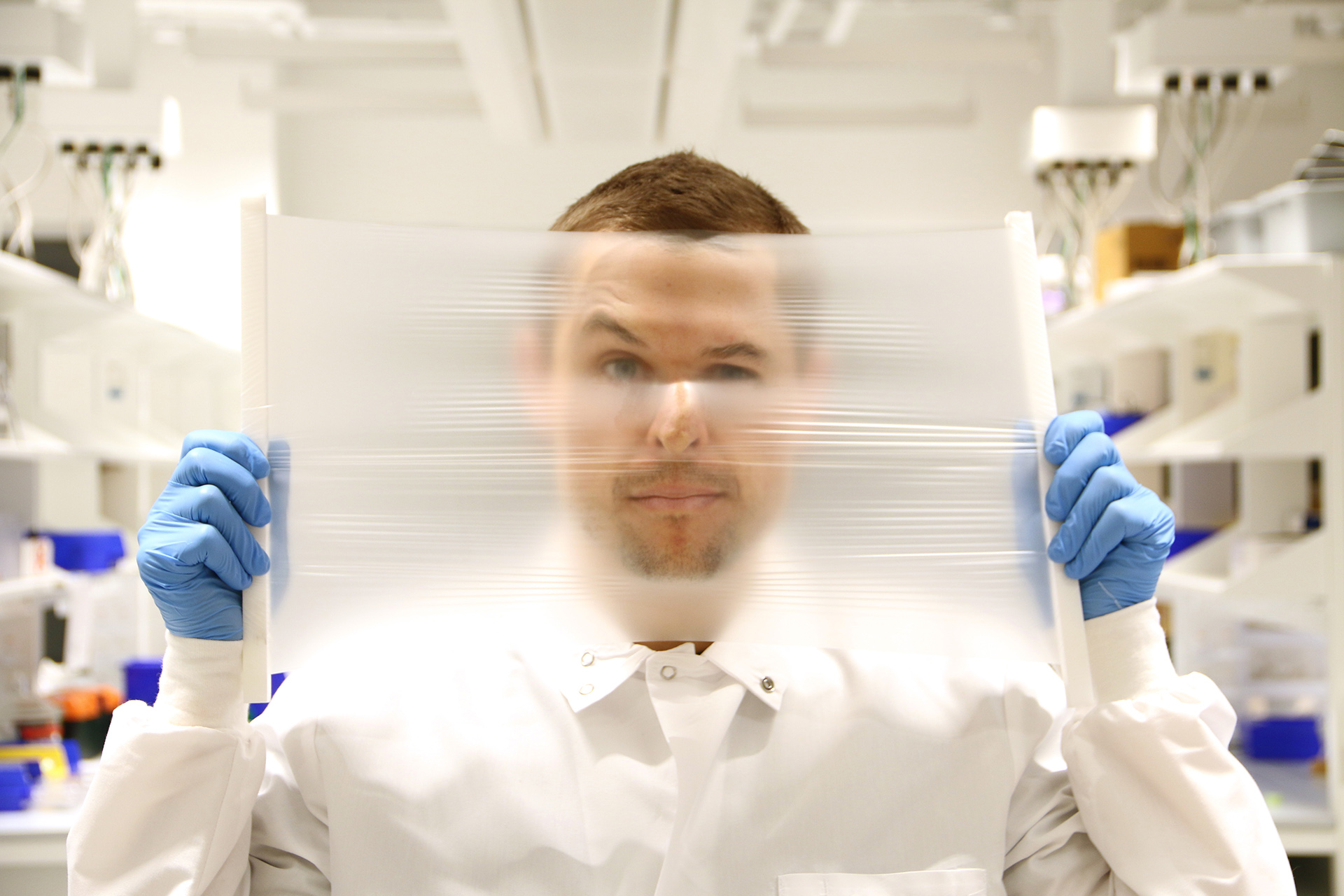Molecular quantum computing is an exciting frontier in the realm of quantum technologies, where recent advancements are poised to revolutionize the way we compute. A groundbreaking study led by a team from Harvard University has successfully demonstrated the ability to trap molecules for performing quantum operations, a feat previously deemed too complex due to the chaotic nature of molecular dynamics. By harnessing ultra-cold molecules as qubits, these researchers have taken a significant step towards creating sophisticated quantum gates that could enhance computational capabilities beyond the limitations of current systems. With the potential to unlock new realms of speed and efficiency, molecular quantum computing harnesses the unique properties of trapped molecules, paving the way for transformative applications in fields such as medicine, finance, and more. This leap in quantum computing advances not only opens doors for future research but also promises to redefine the possibilities of theoretical and practical quantum mechanics.
In the evolving landscape of quantum technologies, the term “molecular quantum computing” embodies a shift toward utilizing complex molecular systems for enhanced computational power. This innovative approach signifies a move away from traditional particle-based quantum systems, such as trapped ions and neutral atoms, towards leveraging the intricate structures of ultra-cold molecules. As researchers explore this new paradigm, they are developing advanced quantum operations and gates that capitalize on the rich electrical interactions present in these molecular frameworks. By intricately managing these systems, scientists aim to utilize the inherent advantages of molecular properties, pushing the boundaries of what quantum computing can achieve. Such advancements can lead to unprecedented breakthroughs in various scientific fields, demonstrating the profound implications of integrating molecular chemistry with quantum mechanics.
The Breakthrough in Molecular Quantum Computing
In a significant advancement for quantum technologies, Harvard scientists have successfully trapped molecules for the first time to perform quantum operations. This achievement marks a crucial step toward developing molecular quantum computing, which utilizes the complex structures of molecules, making it a promising avenue for creating faster and more efficient quantum systems. The team’s innovative approach involved using ultra-cold polar molecules as qubits, the fundamental building blocks that store and manipulate quantum information. With this breakthrough, researchers are excited about the potential applications of trapped molecules in fostering ultra-high-speed experimental technology.
The successful trapping of sodium-cesium (NaCs) molecules allowed the team to implement quantum operations that were previously seen as unattainable due to the challenges posed by molecular instability. By isolating these molecules in ultra-cold conditions and using optical tweezers to control their positions and interactions, the researchers circumvented previous limitations, opening the door to creating a molecular quantum computer. This leap signifies not just a milestone in molecular quantum computing but also the culmination of over two decades of research and experimentation.
Understanding Quantum Gates and Their Role
Quantum gates are fundamental components of quantum computing, functioning as the means to perform operations on qubits, akin to how classical logic gates manipulate binary bits. The introduction of molecules into this domain enables a new level of complexity and capability, primarily due to their internal structures that can represent multiple states simultaneously. In this research, the team utilized the iSWAP gate, which is essential for generating entangled states by swapping the states of two qubits while applying phase shifts. This operation not only enhances the power of the quantum system but demonstrates the unique advantages that molecular quantum computing can offer.
Unlike classical gates that operate in a straightforward binary fashion, quantum gates can achieve superpositions, allowing qubits to exist in multiple states at once. This capability empowers quantum systems to perform calculations that are infeasible for classical computers, such as real-time simulation of molecular interactions in complex chemical reactions. As researchers continue to explore the integration of ultra-cold molecules into quantum operations, the distinct advantages of employing molecular structures are expected to revolutionize quantum computing, paving the way for exceptional breakthroughs in multiple disciplines.
The Role of Ultra-Cold Molecules in Quantum Operations
Ultra-cold molecules have emerged as a pivotal element in the quest to enhance quantum computing capabilities. The ability to cool molecules to near absolute zero allows them to occupy controlled quantum states, thereby facilitating reliable quantum operations. In the recent Harvard study, researchers successfully demonstrated how these ultra-cold polar molecules can be used as qubits, harnessing their electric dipole-dipole interactions to perform intricate quantum manipulations. This underscores the importance of temperature in improving coherence and stability, addressing one of the most significant challenges in the field.
With ultra-cold conditions preserving molecular integrity, scientists can leverage the rich internal structures of these molecules for more advanced quantum operations. This breakthrough in trapping molecules opens new possibilities for quantum computing, particularly in creating more robust qubits that can maintain coherence over longer periods. As the understanding of ultra-cold molecules deepens, researchers anticipate developing innovative techniques that maximize their potential in revolutionizing quantum technology.
Challenges of Molecule Instability and Coherence
Despite the significant advancements in trapping molecules for quantum operations, challenges remain regarding their inherent instability. Molecular systems have traditionally posed a risk to coherence, crucial for reliable quantum computing, due to their unpredictable movements. Researchers in the Harvard team faced this obstacle and found that isolating molecules in ultra-cold environments minimized their motion, ensuring more predictable behavior during quantum operations. Addressing issues of instability is vital as it directly impacts the fidelity and performance of the quantum gates created with these molecules.
The breakthrough reported by the Harvard team not only demonstrates an innovative approach to stabilizing molecular systems but also serves as a testament to what can be achieved with meticulous experimental design and control. By measuring and analyzing potential errors that arise from molecular movements, researchers laid the groundwork for optimizing quantum operations with greater accuracy. This focus on improving coherence in molecules is essential for the advancement of molecular quantum computing, as it holds the key to unlocking their full potential.
Future Directions in Quantum Computing Research
As the field of quantum computing evolves, the recent success in trapping molecules signifies a new frontier filled with possibilities. Researchers are keen to explore how the unique characteristics of molecules can be further harnessed for diverse quantum applications, from communication to complex computation tasks. The exploration of molecular structures, particularly their rich internal dynamics, is expected to lead to breakthroughs that could surpass current conventional quantum systems, propelling the technology into aspects of computation that have yet to be realized.
Ongoing research will likely focus on optimizing the performance of quantum gates created with trapped molecules to achieve higher levels of entanglement and coherence. Furthermore, integrating various molecular species and advancing techniques for manipulating their states will contribute to developing a robust molecular quantum computing platform. As excitement builds around these transformational technologies, the potential impacts on fields such as cryptography, data analysis, and drug discovery are bound to shape the future of how we approach complex problems.
Funding and Collaboration in Quantum Research
The success of the Harvard research team’s groundbreaking work in molecular quantum computing was made possible through the collaboration of a multidisciplinary team and significant funding. Sources such as the Air Force of Scientific Research, the National Science Foundation, and the University Research Initiative provided the essential resources needed to conduct this high-level research. Such support highlights the importance of collaboration in advancing scientific knowledge, especially within the rapidly evolving field of quantum computing where interdisciplinary approaches yield innovative results.
Co-authors of the study, such as Lewis R.B. Picard and Samuel Gebretsadkan, alongside physicists from the University of Colorado’s Center for Theory of Quantum Matter, contributed their expertise to tackle the challenges associated with trapping and manipulating molecules. The combining of different fields—scrutinization of quantum theory, chemistry, and advanced engineering—underscores the collaborative nature of scientific breakthroughs, which are vital for pushing the boundaries of molecular quantum computing and realizing its transformative potential.
Implications for Medicine and Finance
The implications of advancements in molecular quantum computing extend far beyond the realm of theoretical physics and into transformative applications in various fields, particularly medicine and finance. Quantum computing has the potential to facilitate unparalleled computational efficiency, enabling groundbreaking drug discovery methods that could dramatically reduce the time and cost associated with developing new therapeutics. The nuanced understanding and manipulation of molecular structures can provide insights into complex biochemical processes, leading to innovations in personalized medicine and health care.
In the realm of finance, improvements in quantum algorithms enabled by molecular quantum computing can revolutionize risk assessment models and optimize financial strategies. Quantum systems have the capacity to process vast amounts of data and execute complex calculations at speeds unattainable by traditional computers, ushering in a new era of data-driven decision-making in investment strategies and market predictions. These applications highlight the urgent need for continued research at the intersection of quantum physics and real-world problem-solving to maximize societal impact.
Quantum Computing: A Path to Transformative Innovation
The rapid evolution of quantum computing technologies heralds the dawn of transformative innovation across various sectors. The adoption of molecular quantum computing is expected to enhance computational capabilities tremendously, impacting industries ranging from telecommunications to artificial intelligence. The complexity of molecular systems allows for potentially superior performance in quantum algorithms, making them a game changer for tasks such as solving large optimization problems and simulating quantum systems.
Moreover, as researchers unlock the next level of quantum technologies, the implications for economic growth, scientific discovery, and technological advancement are immense. By capitalizing on the capabilities of molecular quantum computing, scientists stand to not only tackle current computational challenges but also pave the way for future explorations that could redefine our understanding of information processing itself. This journey toward quantum innovation outlines the significance of investing in research and development to keep pace with a rapidly changing technological landscape.
Frequently Asked Questions
What recent advances have been made in molecular quantum computing?
Recent advances in molecular quantum computing include the successful trapping of ultra-cold molecules to perform quantum operations for the first time. This significant breakthrough, achieved by a team at Harvard, involves utilizing molecules like sodium-cesium (NaCs) to create quantum gates, particularly the iSWAP gate, which generates entanglement crucial for quantum computing.
How do ultra-cold molecules contribute to quantum computing?
Ultra-cold molecules enhance quantum computing by acting as qubits, which are fundamental units of information. By trapping these molecules in extremely cold environments, researchers can control their internal structures and perform complex quantum operations more effectively than traditional methods using smaller particles.
What role do quantum gates play in molecular quantum computing?
Quantum gates are essential in molecular quantum computing as they facilitate the processing of information. In contrast to classical gates that manipulate bits, quantum gates operate on qubits, allowing for superpositions and entanglements, which vastly improve computational capabilities.
What challenges have researchers faced in using molecular structures for quantum operations?
Researchers have faced challenges related to the complexity and fragility of molecular structures, which were deemed too unpredictable for stable quantum operations. However, by utilizing ultra-cold environments and precise trapping techniques, these issues can now be mitigated, enabling successful quantum operations with molecules.
Can you explain the significance of the iSWAP gate in quantum computing?
The iSWAP gate is significant in quantum computing as it allows for the swapping of states between two qubits and applies a critical phase shift. This operation is vital for generating entanglement, a property that enhances the power of quantum computers, thereby enabling more complex calculations.
How has the approach to molecular quantum computing evolved over the years?
The approach to molecular quantum computing has evolved from skepticism regarding the stability of molecules to a promising avenue of research. Over the past two decades, efforts have focused on addressing the fragility of molecular systems, culminating in recent successes in trapping and controlling ultra-cold molecules for quantum operations.
What potential applications could arise from breakthroughs in molecular quantum computing?
Breakthroughs in molecular quantum computing could lead to transformative applications in various fields, including medicine, science, and finance. By harnessing the complex internal structures of molecules, researchers could achieve exponentially faster computing speeds and solve problems unmanageable by classical computers.
How do trapped molecules compare to other systems used in quantum computing?
Trapped molecules are distinct from other quantum systems like trapped ions or superconducting circuits, as they leverage the rich internal structures of molecules for quantum operations. This capability may offer new pathways for creating advanced quantum computers with enhanced capabilities due to their unique physical properties.
What is the future outlook for molecular quantum computing?
The future outlook for molecular quantum computing looks promising, as researchers anticipate numerous innovations stemming from the unique properties of molecules. With the recent advancements in trapping and controlling molecular systems, there is potential for significant progress in achieving more robust and versatile quantum computing technologies.
| Key Point | Details |
|---|---|
| Groundbreaking Achievement | Harvard team successfully trapped molecules for quantum operations. |
| Use of Molecules | Molecules, previously deemed too complex, will now serve as qubits. |
| Significance of Research | The findings are crucial for advancing technologies in quantum computing. |
| Quantum Gates | Introduced iSWAP gate to create entanglements, enhancing quantum operations. |
| Collaboration | Research conducted by Kang-Kuen Ni and his team with contributions from other physicists. |
Summary
Molecular quantum computing marks a significant advancement in the field of quantum technology. By successfully trapping molecules to perform quantum operations, researchers open up new possibilities for utilizing complex molecular structures as qubits. This achievement not only enhances the potential for faster and more powerful quantum computers but also addresses the challenges associated with previous attempts to use molecules in quantum computing. With the groundbreaking success demonstrated by the Harvard team, the future of molecular quantum computing looks promising, setting the stage for unprecedented advances in various fields, including medicine and finance.



